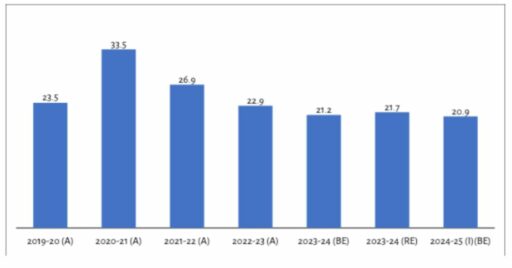Embarking on the journey toward financial freedom can be both exhilarating and daunting for beginners. This guide serves as a comprehensive roadmap to help you understand the fundamentals of personal finance, develop essential money management skills, and lay the groundwork for a prosperous future. By exploring various strategies, from budgeting to investing, and leveraging the innovative solutions offered by personal finance startups, you’ll gain the knowledge and confidence needed to take control of your finances and build lasting wealth.
Key Takeaways
- Establish clear financial goals and create a personalized budget to guide your spending and saving decisions.
- Build an emergency fund to safeguard against unforeseen expenses and manage existing debt to reduce financial stress.
- Develop money management skills, such as tracking spending habits and utilizing digital tools, to optimize your financial health.
- Invest in your future through informed investing strategies, retirement planning, and exploring passive income opportunities.
- Adopt a wealth-building mindset, embrace continuous financial education, and use personal finance startups to overcome financial hurdles.
Laying the Foundation for Financial Freedom


Understanding Your Financial Goals
Setting clear financial goals is the first step towards achieving financial freedom. It’s about understanding what you want to accomplish with your money, whether it’s saving for a dream vacation, preparing for retirement, or buying a home. These goals not only provide direction but also serve as a motivational force to propel you forward.
To stay on track, it’s essential to categorize your goals into short-term and long-term. Short-term goals might include saving for a holiday or paying off a small debt, while long-term goals could be buying a house or securing retirement funds.
Here’s a simple way to start defining your goals:
- Identify what you want to achieve financially.
- Break down each goal into actionable steps.
- Assign a timeline to each goal.
- Regularly review and adjust your goals as needed.
Remember, your financial goals are personal to you and can change over time. Regularly revisiting and adjusting your goals ensures that your financial plan remains aligned with your life’s evolving priorities.
Creating a Personal Budget
Creating a personal budget is the cornerstone of sound financial management. It’s the process of mapping out your income against your expenses to ensure you can achieve your financial goals without living beyond your means. Start by listing all your sources of income and then detail your monthly expenses. This will give you a clear picture of where your money is going and where you might be able to cut back.
A personal budget is not about restriction; it’s a strategic plan that empowers you to allocate your resources in a way that reflects your priorities and goals.
Here’s a simple way to categorize your expenses:
- Fixed expenses (rent, mortgage, utilities)
- Variable expenses (groceries, entertainment)
- Discretionary expenses (dining out, hobbies)
By categorizing your expenses, you can identify areas where adjustments can be made. Remember, the goal is to find a balance that allows for savings and debt repayment while still enjoying life. Utilize budgeting tools and apps to help you stay on track and make the process more manageable.
Building an Emergency Fund
An emergency fund acts as your financial safety net, designed to cover unexpected expenses or financial emergencies. Start by saving a small, manageable amount and aim to cover three to six months’ worth of living expenses. This fund should be kept in an easily accessible account, allowing for quick withdrawals without penalties.
Building an emergency fund is a critical step in securing your financial well-being and ensuring you can handle life’s surprises without derailing your financial plans.
To effectively start your emergency fund, consider these steps:
- Assess your monthly expenses to determine how much you can realistically save.
- Identify non-essential expenses that can be reduced or eliminated.
- Set a clear savings goal and create a timeline to achieve it.
- Automate your savings by setting up regular transfers to a dedicated emergency fund account.
Remember, the key is consistency. Even small contributions can grow into a substantial safety net over time. By prioritizing this fund, you provide yourself with peace of mind and the ability to navigate through financial challenges without relying on high-interest debt options.
Managing Debt Effectively
Debt management is a critical component of achieving financial freedom. Creating a debt repayment plan is the first step towards taking control of your financial obligations. By prioritizing high-interest debts and negotiating better terms with creditors, you can reduce the burden and avoid the pitfalls of unhealthy debt.
It’s essential to differentiate between ‘good’ and ‘bad’ debt, as this understanding can guide your repayment strategy and financial decisions.
Avoiding new debt while paying off existing obligations is a key principle in debt management. Seeking the assistance of a credit counselor can also provide valuable insights and support. Remember, managing your debt effectively is not just about making payments, but also about maintaining a good credit score and paving the way for a secure financial future.
Here are some strategies to consider:
- Negotiate with creditors for lower interest rates
- Prioritize debts with the highest interest rates
- Avoid taking on new debt during repayment
- Explore debt consolidation options if necessary
Mastering Money Management Skills


Tracking Your Spending Habits
Understanding where your money goes each month is the cornerstone of sound financial management. By tracking your spending habits, you can gain insights into your financial behavior and pinpoint areas for improvement. Start by categorizing your expenses to see the bigger picture of your financial flow.
- Groceries
- Transportation
- Entertainment
- Utilities
- Dining Out
With a clear categorization, it becomes easier to spot trends and outliers in your spending. This can lead to more informed decisions and a better alignment with your financial goals.
Digital tools have revolutionized the way we track our finances. Apps like Mint and YNAB integrate with your bank accounts, automatically categorize transactions, and provide a comprehensive view of your spending. Utilizing these tools can simplify the process and provide real-time updates, helping you to adjust your habits and save money more effectively.
Remember to regularly review your financial data. This not only helps in maintaining a budget but also in celebrating the small victories along the way. Each month, take time to assess your spending against your budget, and recognize the progress you’ve made towards your financial milestones.
Utilizing Digital Budgeting Tools
In the realm of personal finance, digital budgeting tools have become indispensable for those seeking to manage their money more effectively. These platforms offer a comprehensive view of your financial landscape, allowing for real-time tracking of expenses and income. With features designed to simplify the budgeting process, users can easily set financial targets and monitor their progress towards achieving them.
Digital budgeting tools come in various forms, each tailored to different budgeting philosophies. For instance, some apps focus on zero-based budgeting, where every dollar is assigned a job, while others may utilize the envelope system to categorize and control spending. Here’s a quick overview of popular budgeting tools:
- YNAB (You Need A Budget), for hands-on zero-based budgeting
- Goodbudget, for hands-on envelope budgeting
- EveryDollar, for simple zero-based budgeting
Embracing these tools can lead to a more disciplined and informed approach to personal finance. They encourage users to be proactive about their spending and saving habits, which is a critical step towards financial freedom.
Ultimately, the choice of a digital budgeting tool should align with your personal financial strategy and goals. Regular use and review of these tools can help pinpoint areas for improvement, making it easier to adjust your budget and stay on course for long-term financial success.
The Art of Frugal Living
Frugal living is not about cutting joy out of your life, but about making smart choices that align with your financial goals. It’s about prioritizing your spending on what truly matters and finding creative ways to save without sacrificing quality of life. For instance, instead of dining out frequently, one could learn to cook delicious meals at home, significantly reducing food expenses without compromising on nutrition or taste.
Embracing frugality is not synonymous with being cheap; it’s a strategic approach to stretch your hard-earned money further. By adopting frugal habits, you can redirect funds towards paying off debt or growing your savings.
Here are a few practical tips to live frugally:
- Shop second-hand for clothing and household items.
- Cancel unused subscriptions and memberships.
- Use public transportation or carpool instead of driving alone.
- Plan meals around sales and seasonal produce.
Books like Atomic Habits and The Behavior Gap offer insights into forming positive financial behaviors that support a frugal lifestyle. Additionally, titles such as Finding Financial Freedom and Financial Independence Theory can provide guidance on how to live debt-free and achieve financial liberation.
Automating Your Finances
Achieving financial goals often hinges on the ability to save and invest consistently. Automation is a powerful tool that can help you maintain this consistency without the need for constant oversight. By setting up automatic transfers from your paycheck to your savings and investment accounts, you’re effectively prioritizing your future financial well-being.
Automation not only simplifies the process of saving but also reinforces good financial habits. It’s a strategic approach that ensures a portion of your income is always working for you, contributing to your goals without the temptation to spend.
Here’s how you can start automating your finances:
- Determine the amount you can comfortably save each month.
- Choose the savings or investment accounts that align with your goals.
- Set up automatic transfers for these amounts on your payday.
- Monitor and adjust the contributions as your financial situation evolves.
Remember, the key to financial freedom lies in the small, consistent actions you take today. Automating your finances is a step towards building a secure and prosperous future.
Investing in Your Future


Introduction to Investing
Investing is a crucial step towards achieving financial freedom. It allows you to put your money into assets that can generate income or grow in value over time. Understanding the basics of stocks, bonds, and mutual funds is essential for making informed decisions that match your financial objectives and risk appetite.
As a beginner, it’s important to recognize that all investments carry some degree of risk. However, there are strategies to manage this risk effectively. Diversifying your investment portfolio is one such strategy, ensuring that you’re not putting all your eggs in one basket. A diversified portfolio might include a mix of asset classes such as:
- Stocks
- Bonds
- Real Estate
- Mutual Funds
By starting with a small amount and gradually increasing your investment, you can build your wealth over time without exposing yourself to undue risk.
Remember, the goal is to make your money work for you, creating an additional stream of income or capital gains. With patience and a well-thought-out plan, investing can be a powerful tool for securing your financial future.
Retirement Planning Basics
Retirement planning is a crucial step in achieving financial freedom. It’s essential to start early to harness the power of compounding interest. Begin by understanding the different types of retirement accounts available, such as 401(k)s and IRAs, which offer unique tax advantages and can significantly impact your long-term savings.
To effectively plan for retirement, follow these steps:
- Determine your retirement age goal.
- Calculate the amount of money you will need to retire comfortably.
- Prioritize your financial goals and align your savings accordingly.
- Select the right retirement accounts that suit your needs.
- Consistently contribute to your retirement savings and monitor your investments.
Remember, retirement planning is not just about saving money; it’s about creating a strategy that will provide for your needs and desires in your golden years. By setting clear priorities and choosing the appropriate accounts, you can build a robust retirement fund that will support you through retirement.
Exploring Passive Income Streams
Passive income is the linchpin of financial autonomy, offering a way to earn money without the constant exchange of time for wages. Diversifying your income sources is essential for a resilient financial strategy that can weather economic shifts.
-
Investment Diversification: Spreading your investments across stocks, bonds, real estate, and mutual funds can mitigate risks and provide a steady income. For example, rental properties can offer consistent rental income, while dividend-paying stocks furnish periodic earnings.
-
Digital Assets and Online Ventures: The digital realm offers lucrative opportunities for passive income. Creating niche websites, engaging in affiliate marketing, and investing in cryptocurrencies are avenues worth exploring. Digital products like e-books or online courses can also be significant income generators.
By understanding the dynamics of passive income and actively engaging in its pursuit, you can secure a stable financial future and embrace the essence of financial independence.
Diversifying Your Investment Portfolio
Achieving financial freedom often hinges on the ability to weather market volatility. Diversifying your investment portfolio is a strategic approach to managing risk and aiming for consistent returns. By spreading your investments across various asset classes and sectors, you can cushion the blow of any single investment’s downturn.
- Stocks
- Bonds
- Real Estate
- Mutual Funds
Each asset class carries its own set of risks and rewards, and a well-diversified portfolio can help balance these factors. For example, while stocks may offer high growth potential, they can be volatile. Bonds, on the other hand, typically provide more stability but with lower returns. Real estate investments can offer both income through rent and potential appreciation in value, whereas mutual funds allow for exposure to a variety of assets within a single investment.
Diversification is not just about mixing different types of investments; it’s also about aligning them with your financial goals and time horizons. Short-term goals may benefit from safer, more liquid assets, while long-term objectives might warrant a more aggressive approach.
Remember, diversification is a dynamic process. As your financial situation and the economic landscape change, so should your investment strategy. Regularly reviewing and adjusting your portfolio is key to maintaining a healthy financial future.
Navigating the World of Personal Finance Startups


The Rise of Fintech and Its Impact
The financial technology, or Fintech, sector has dramatically transformed the landscape of personal finance. With the advent of innovative startups, the once complex world of finance is becoming more accessible and user-friendly. These companies leverage cutting-edge technology to demystify personal finance, offering tools and services that simplify investment strategies, budgeting, and planning for the future.
- Automation and efficiency in financial transactions
- Real-time data access for informed decision-making
- Enhanced security measures to protect user data
- Personalized financial planning for individual needs
Fintech startups are not just changing how we manage our money; they are reshaping our financial literacy and empowering us to make better financial decisions.
As we witness the continued growth of Fintech, it’s clear that these startups are pivotal in helping individuals achieve financial freedom. By staying informed and embracing these innovations, we can all navigate the financial world with greater confidence and ease.
Choosing the Right Personal Finance App
In the quest for financial mastery, selecting the right personal finance app is a pivotal step. The market is flooded with options, each offering a unique set of tools to aid in income management, debt reduction, and more. It’s essential to choose an app that aligns with your financial goals and lifestyle.
- Ease of Use: A user-friendly interface is crucial. Apps like Mint and Personal Capital are known for their intuitive navigation.
- Features: Look for apps that provide comprehensive insights into your finances, including spending visualizations and expense categorization.
- Security: Ensure the app has robust security measures to protect your financial data.
- Cost: Consider whether the app is free or requires a subscription, and if the features justify the cost.
By leveraging technology for financial growth, personal finance apps can transform the way you handle your money, making every dollar count.
Remember, the best app for you is one that not only helps you track your finances but also empowers you with the knowledge to make informed decisions. It should simplify financial management and provide actionable insights to improve your financial health.
How Startups Can Help You Save Money
Personal finance startups have transformed the landscape of saving money, making it more accessible and less daunting for individuals. Budgeting made easy is one of the key advantages these startups offer. By streamlining the budgeting process, they eliminate the complexity and time investment traditionally associated with managing finances. Users can effortlessly track income, expenses, and work towards their financial goals on a single platform.
Startups offer personalized savings recommendations, analyzing financial data to pinpoint saving opportunities and optimize expenses.
Smart savings strategies are another cornerstone of how these startups aid in saving money. They utilize technology and automation to integrate saving into your daily financial habits seamlessly. This approach ensures that saving becomes a natural and effortless part of your routine.
In conclusion, personal finance startups are pivotal in helping individuals save money more effectively. They simplify budgeting, provide smart savings features, and personalize recommendations, all of which contribute to a more empowered approach to managing personal finances.
Overcoming Financial Hurdles with Innovative Solutions
In the quest for financial freedom, personal finance startups are playing a pivotal role in helping individuals surmount monetary challenges. These companies are at the forefront of financial innovation, offering a range of services designed to address the specific needs of users.
Before leveraging the power of these startups, it’s crucial to pinpoint the financial hurdles you’re facing. Common obstacles include debt management, insufficient savings, and a lack of financial literacy. By identifying these challenges, you can seek out the most effective tools and resources to address them.
Personal finance startups are not just about technology; they’re about transforming the financial journey into one that’s more accessible, personalized, and empowering.
Here’s how these startups can assist:
- Tailored financial advice to suit your unique situation
- Automated tools for budgeting and savings
- Innovative platforms for investment and wealth management
- Educational resources to enhance your financial knowledge
By embracing the solutions offered by personal finance startups, you can navigate the complexities of money management with greater ease and confidence.
Cultivating a Wealth-Building Mindset


Adopting a Money Mindset for Success
To achieve financial freedom, it’s essential to explore strategies for financial freedom through an abundant mindset, strategic planning, and innovative income streams. By transforming your perspective on money, you can confidently navigate future financial decisions and avoid repeating past mistakes. This transformation is not just about making more money but about achieving a sense of freedom and fulfillment in life.
- Seek guidance from experienced individuals in the financial markets.
- Invest in learning about money management.
- Prioritize long-term knowledge and skill development.
Embrace patience and focus on the outcomes that inspire action and change in your life trajectory. Remember, it’s a long-term journey, not a quick fix. By adopting a proactive approach to managing your finances, you can unlock your potential for success and master practical, real-world approaches to increase your odds of success in all areas of life.
The Power of Financial Education
The journey to financial freedom is paved with knowledge and understanding. Financial education is the cornerstone of this journey, equipping individuals with the tools they need to navigate the complexities of personal finance. By enhancing financial literacy, one can confidently make decisions that align with their financial goals and aspirations.
- Increased financial literacy
- Informed decision-making
- Long-term financial stability
Financial education is not just about learning to manage money; it’s about transforming the way you think about and interact with your finances.
Embracing financial education means delving into topics such as budget management, debt handling, and investing. These are essential for achieving long-term stability and wealth accumulation. As you grow in knowledge, you’ll find that navigating personal finance becomes less daunting and more empowering.
Breaking Free from Financial Myths
Many of us are held back by financial myths that can skew our approach to money management. Boldly challenging these myths is essential to achieving financial freedom. For instance, the belief that one must earn a high income to become wealthy ignores the power of smart investing and frugal living.
It’s not about how much you earn, but how you save and invest that counts.
Understanding the difference between ‘good debt’ and ‘bad debt’ is another myth that needs dispelling. Good debt can be an investment that grows in value or generates long-term income, while bad debt is costly with no potential return.
- Myth: High income equals wealth
- Reality: Wealth comes from saving and investing wisely
- Myth: All debt is bad
- Reality: Some debts can be investments
By educating ourselves and rejecting these misconceptions, we pave the way for a healthier financial future.
Staying Motivated on Your Financial Journey
Maintaining motivation is essential as you navigate the path to financial freedom. Celebrate small victories and adjust your strategies when necessary to keep your financial plan on track. Regularly reviewing your progress can reinforce your commitment and highlight areas for improvement.
Achieving financial goals is a dynamic process that requires both consistency and the flexibility to adapt when circumstances change.
Here are some steps to help you stay motivated:
- Reflect on your financial achievements, no matter how minor they may seem.
- Set clear, achievable milestones to maintain a sense of progress.
- Engage with financial education resources to enhance your knowledge.
- Connect with a community that shares your financial aspirations.
Remember, the journey to financial independence is not a sprint, but a marathon. By staying informed and embracing the process, you’re paving the way for a secure financial future.
Conclusion
Embarking on the journey to financial freedom is an empowering endeavor that can lead to a life of security, choice, and fulfillment. As we’ve explored in this guide, understanding the basics of personal finance is the cornerstone to building a solid financial foundation. From budgeting and saving to investing and choosing the right financial tools, each step you take is a move towards unlocking your financial potential. Remember, the path to financial freedom is unique for everyone, and with the right mindset and resources, such as personal finance startups, you can tailor a strategy that fits your goals. Stay informed, stay disciplined, and keep striving for success. Your financial future is in your hands, and the time to start shaping it is now.
Frequently Asked Questions
What are the first steps to achieving financial freedom?
The first steps include understanding your financial goals, creating a personal budget, building an emergency fund, and managing any existing debt effectively.
How can I track my spending habits effectively?
You can track your spending by manually recording expenses, using digital budgeting tools, or through mobile apps designed to monitor and categorize your spending.
What are some beginner-friendly investment options?
Beginner-friendly investment options include high-yield savings accounts, certificates of deposit (CDs), index funds, and robo-advisors for automated investing.
What role do personal finance startups play in managing finances?
Personal finance startups offer innovative tools and services for budgeting, saving, investing, and managing money more efficiently, often with a user-friendly approach.
How can I develop a wealth-building mindset?
To develop a wealth-building mindset, focus on financial education, set clear and achievable goals, remain disciplined in your spending, and consistently seek ways to increase your income and investments.
Are personal finance apps safe to use for managing my money?
Most personal finance apps use strong security measures to protect user data, but it’s important to research each app’s security protocols and read reviews before trusting them with your financial information.





